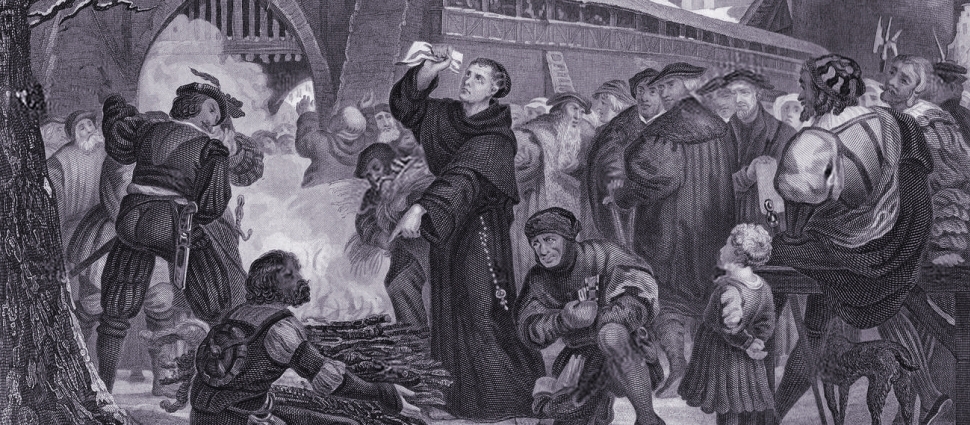May 18, 2020

Matthew 13:1-9; 18-23
"That same day Jesus went out of the house and sat beside the sea. And great crowds gathered about him, so that he got into a boat and sat down. And the whole crowd stood on the beach. And he told them many things in parables, saying: 'A sower went out to sow. And as he sowed, some seeds fell along the path, and the birds came and devoured them. Other seeds fell on rocky ground, where they did not have much soil, and immediately they sprang up, since they had no depth of soil, but when the sun rose they were scorched. And since they had no root, they withered away. Other seeds fell among thorns, and the thorns grew up and choked them. Other seeds fell on good soil and produced grain, some a hundredfold, some sixty, some thirty. He who has ears, let him hear…'
'Hear then the parable of the sower: When anyone hears the word of the kingdom and does not understand it, the evil one comes and snatches away what has been sown in his heart. This is what was sown along the path. As for what was sown on rocky ground, this is the one who hears the word and immediately receives it with joy, yet he has no root in himself, but endures for a while, and when tribulation or persecution arises on account of the word, immediately he falls away. As for what was sown among thorns, this is the one who hears the word, but the cares of the world and the deceitfulness of riches choke the word, and it proves unfruitful. As for what was sown on good soil, this is the one who hears the word and understands it. He indeed bears fruit and yields, in one case a hundredfold, in another sixty, and in another thirty.'"
By teaching in parables, the Lord Jesus intended to both reveal and conceal the truth (13:10-17). William Hendriksen writes: "Jesus now, more than ever before, begins to speak in parables in order to further reveal the truth to those who accepted the mysterious, but to conceal it from those who rejected the obvious." In this way, the parables as a means of teaching were a demonstration of grace to those who believed, and an act of judgment upon those who did not.
The Parable of the Sower is recorded in each of the synoptic gospels (Matt, Mark, Luke). In the teaching of Jesus, agricultural themes were a rich source of material for illustrating the nature of God’s kingdom. In the Old Testament, promises of spiritual restoration are often illustrated by or compared to sowing seed and fruitful harvests. On the other hand, the prophets used agricultural devastation as a way to symbolize God’s judgment.
The most surprising feature of the Parable of the Sower is Jesus’ description of a sower who casts seed upon four kinds of soil only one of which is truly capable of producing fruit. Jesus was confirming what the disciples were already observing: that God’s Word does not have the same effect everywhere it is proclaimed. Not all preaching yields the fruit of repentance and faith.
The main elements of this particular parable are the Sower, the seed, and the soils. The “seed” in the parable is the Word of God. The sower is first symbolic of Jesus. But his apostles after him and the church following them will become sowers of God’s Word as well. The various soils Jesus references are meant to depict the varied conditions of the human heart upon which the gospel falls.
The Parable of the Sower illustrates the relationship of the Word of God to salvation. That is, it symbolizes the fact that God draws, saves, and continues to grow his people through means of his word. Do you ever wonder why we make such a big deal about the centrality of the Word of God? Do you ever wonder why in our evangelism and disciple-making we desire to make God’s Word central? Do you ever wonder why every Lord’s Day we preach the Word of God? It is because of the very thing that Jesus is illuminating in this parable.
Jesus symbolizes the in-breaking of God’s kingdom as a sower sowing seed because the chief means by which God saves and grows his people is through the ministry of the Word. Jesus is still the chief Sower. But he goes about that work through the ordinary means grace which he has entrusted to his church. Now, in each of Jesus’ parables there is usually a feature that is meant to surprise—even shock us. In the Parable of the Sower it may be that we are to be surprised by the seemingly sloppy way the sower goes about casting seed.
Seed is valuable. It carries in it the sustenance that people will need to live. Farmers know that seed must be treated carefully. It cannot be wasted. But in his parable Jesus depicts a sower who is not so careful with the seed that it only falls on the most promising soil. Indeed, he sows in such a way that seed is sure to fall on the most un-promising of places. The sower casts seed in such a way that it will fall among thorns and rocks.
This tells us a lot about how Jesus goes about casting the gospel. It tells us a lot about how we, as those entrusted with the seed of the gospel, must never be so cautious with our witness that it never falls upon rocks. Gospel witnesses are blessedly careless in the way they spread about the good news. They are not so naïve as to believe that every person who hears will believe. But the task of the faithful witness is to get the gospel out. God in his sovereign mercy will determine the outcome.




